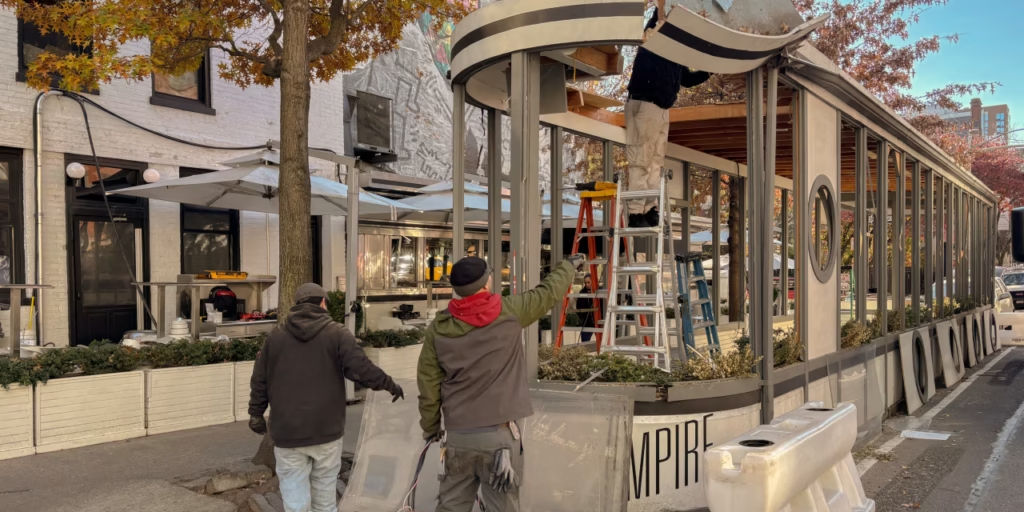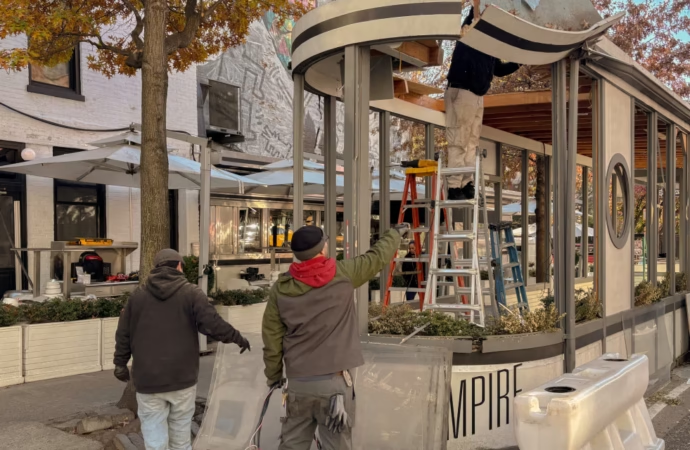When the pandemic forced New York City’s restaurant industry to the brink, a fast-moving policy gave many businesses a way to survive. City leaders launched Open Restaurants, an emergency program that allowed dining to move outdoors, transforming sidewalks and curbside parking spots into bustling extensions of the city’s eateries. At first, it felt like a
When the pandemic forced New York City’s restaurant industry to the brink, a fast-moving policy gave many businesses a way to survive. City leaders launched Open Restaurants, an emergency program that allowed dining to move outdoors, transforming sidewalks and curbside parking spots into bustling extensions of the city’s eateries.
At first, it felt like a reinvention of urban life. Thousands of makeshift dining setups appeared across the five boroughs, some little more than plywood shacks, others dressed up with string lights, heaters, air conditioning units, and floral décor. At its peak, as many as 12,500 structures lined city streets, creating a scene some compared to European café culture.
But what started as a symbol of resilience soon took on a different character. While diners relished the open-air options, many residents grew frustrated. The sheds brought noise, pests, and traffic headaches, while abandoned or poorly maintained structures quickly became eyesores. By 2022 and 2023, after multiple program extensions, critics said the system had spiraled out of control.

The city responded. By late 2024, most of the makeshift sheds were dismantled, piece by piece, marking the end of what had been a freewheeling era in local dining. Outdoor seating hasn’t disappeared entirely — many restaurants still embrace sidewalk service — but the era of pandemic-era shantytown chic is over.
For restaurants, the program offered both salvation and struggle: it kept businesses alive when indoor dining wasn’t possible, yet left behind regulatory and community battles that continue to shape policy. For New Yorkers, the period remains a vivid chapter in the city’s dining history — remembered with both nostalgia and relief.

















Leave a Comment
Your email address will not be published. Required fields are marked with *